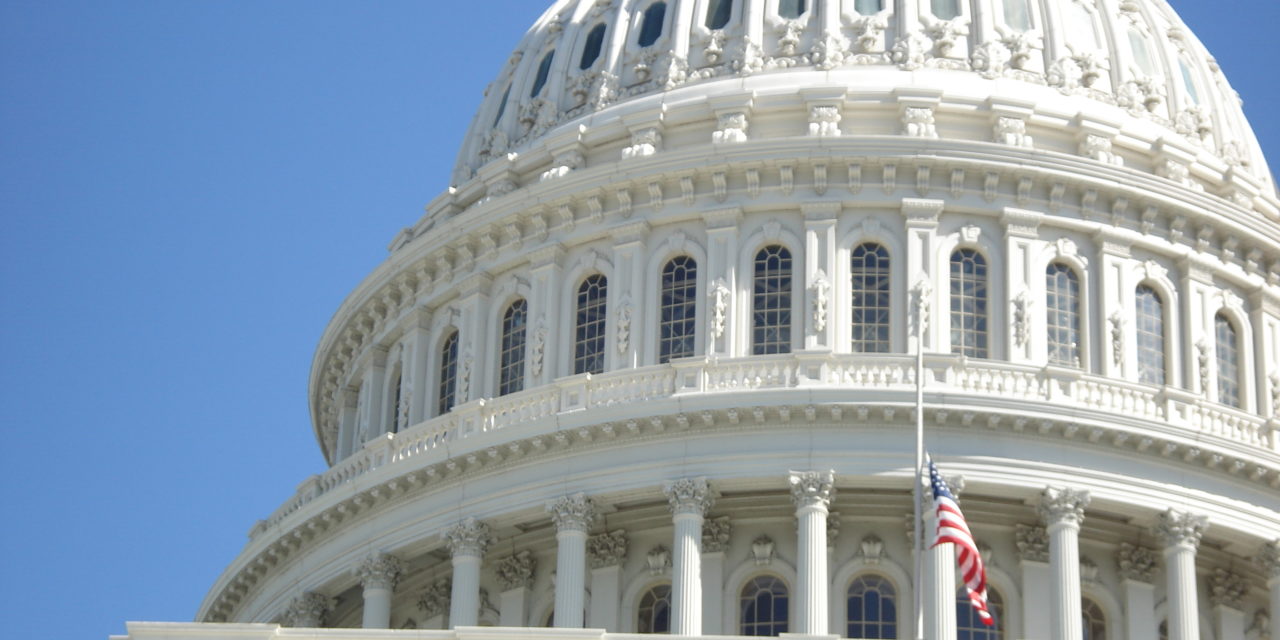This post was updated on Dec. 1, 2017.
After 30-plus years since the last comprehensive tax reform achievement in Congress, 2017 certainly marks a prime time to set partisan politics aside and overhaul the massive IRS tax code that lawmakers on Capitol Hill have incrementally created over the past three decades.
But the job is not supposed to be quick and easy. One man’s valued tax credit is another man’s wasteful tax loophole. So, with the congressional Republicans steaming ahead with two versions of a 250-page tax reform bill, the winners and losers barely have time to catch their breath.
One of those losers could very well be the state of Michigan.
First, beyond the criticism that these plans would overwhelmingly benefit the rich, the top 1 percent, most of the individual income tax reductions will go to those making $100,000 a year or more. But, unlike the prosperous states on the East and West Coasts, Michigan, surprisingly, has only about 8 percent of families that earn that six-figure mark.
As a result, about nine in 10 Michigan households will experience little or no tax relief overall in the coming 10 years. The nonpartisan Joint Committee on Taxation (JCT), an arm of Congress, released a detailed analysis of the Senate version that shows that, at the terminus of the temporary income tax revisions in 2027, roughly 98 percent of low-income taxpayers earning $30,000 or less will experience a minimal tax cut, or a tax increase.
This new JCT analysis also demonstrates that in the long run approximately 94 percent of the broad middle class, those earning between $30,000 and $100,000, will receive a small tax cut ($500 or less) or will face a tax hike.
Auto industry is worried
Second, the auto industry, the lifeblood of the Michigan economy, hates a key provision in the proposed new tax code.
Wired.com, a news site that broadly covers the tech sector, reports that American carmakers are “very cranky” about Congress’ plan to remove the $7,500 tax credit for consumer purchases of electric vehicles (EVs). The elimination of the federal tax provision would make it especially difficult for the Big Three domestic automakers to handle the marketing logistics between those states that have their own EV tax credits and those that don’t.
More importantly, experts say getting rid of the federal credit could nearly kill the entire Big Three electric car market on a global scale. In other gigantic car markets, such as China and Europe, automakers are pushing aggressively toward a new market in which many corporate fleets will transition to electric.
Purist capitalists – mainly libertarians – will praise the congressional proposal, while the rest of the world’s economic powerhouses engage in various government subsidies to boost their electric car industries and consumer markets.
The Morgan Stanley investment firm projects that, by 2050, there may be 1 billion electric vehicles on the road worldwide.
Cuts to Medicare feared
Third, on a more personal level, the Senate version of tax reform would gain substantial new revenues by repealing the Obamacare mandate that requires all workers to obtain health insurance or pay a federal fine/surtax. According to the Michigan League for Public Policy, that change would add an estimated 398,000 state residents to the ranks of the uninsured by 2025, boost annual premiums on the Affordable Care Act marketplace by up to $1,520 for a family of four, and put Michigan in place to experience reductions in Medicare for seniors nearing $1 billion over the next decade.
Senate rules could trigger deep automatic cuts to Medicare, Medicaid and other federal programs if tax revenues take a dive.
What’s more, the congressional plans, with a special emphasis on dramatically reducing federal corporate taxes, come at a time when Michigan has already substantially cut state corporate taxes. The massive $1.8 billion tax reform/shift of 2011 in favor of employers has done little to attract new companies to Michigan. The bountiful gains predicted due to tax policies have not materialized.
But thanks, in part, to an explosion in domestic auto sales over the post-recession years, the state is virtually at full employment with a jobless rate of just 4.3 percent. Michigan has fared far better than most states in economic improvements. So, it’s hard to understand how the congressional tax plans will substantially benefit Michigan’s job market.
Big loss for workers’ job training
In addition, Gov. Rick Snyder has endlessly promoted the need for unemployed or underemployed Michigan blue collar workers to attain new skills at vocational schools or community colleges that match the current job market.
Yet, the House Republican plan would slash tax advantages that fund training programs for workers. The bill would repeal the Lifetime Learning Credit, a 20 percent tax credit on retraining tuition expenses at any eligible postsecondary program up to $10,000 for those who make $65,000 or less (or $130,000 or less for married couples filing jointly). Over 4 million tax filers claim the credit annually, saving them about $2.6 billion a year.
Now, we come to the disparity between the issues facing the current U.S. economy and the goals of the tax reform proposals in Congress.
Tax reform is supposed to pare down the tax credits, deductions and loopholes in favor of a simpler, broad-based tax system. Yet, President Trump has practically abandoned the use of the word “reform” in recent weeks and has referred to the bill as a tax cut – a big, beautiful, yuge tax cut that will especially benefit the wealthy.
That inevitably raises suspicions.
Republicans have been a one-note song on the economy – tax cuts first and always – ever since the economic and political success of Ronald Reagan. Yet, the 1986 tax reform bill of the Reagan era was a truly bipartisan effort between the Democratic Congress and the Republican president that took shape after numerous congressional hearings and two years of effort.
2017 is not the Reagan era of 1986
Reagan’s tax policies – cuts and reforms – served as an antidote to the high unemployment, high inflation and sky-high interest rates that he inherited from Jimmy Carter.
In contrast, today’s U.S. economy enjoys low individual income tax rates, extraordinarily low interest rates, and overall unemployment rates that, as is the case in Michigan, match economists’ measure of full employment.
We are in productive economic territory that has no semblance whatsoever to the 1980s. With the current job market in good shape and corporate profits at or near record levels, it is hard to see a tax cut doing much to stimulate investment and growth, as GOP lawmakers claim.
At the heart of these bills is a cut in the top corporate tax rate from 35 percent to 20 percent – a 43 percent windfall — that the administration and congressional leaders argue will encourage businesses to invest, hire more people and give workers raises.
The lack of assurances about these claims serves as a tell-tale sign.
No guarantee of wage hikes
With Trump and congressional Republicans recently asserting that reforms benefiting corporations will create a $4,000 wage boost — a take-home pay increase — for the average middle class family, one labor union, the Communication Workers of America, which has a significant membership in Michigan, issued a challenge. Union leaders insisted the companies who employ CWA workers promise a $4,000 gain in workers’ wages if tax reform is adopted. The employers have ignored the request, calling it a gimmick.
In recent days, GOP Sen. Bob Corker of Tennessee has tried to forge a “trigger” that would claw back some of the tax cuts if future budget deficits begin to mount. Some economic projections have placed the added red ink in federal budgets at $1.4 trillion over 10 years. Still, most Republican senators remain staunchly opposed to the Corker proposal, adhering to a widely discredited economic theory that a trickle-down tax cut pays for itself.
The JCT “dynamic” scoring released on Thursday shows that, even with economic growth associated with the tax changes, a $1 trillion hole would develop in federal budgets.
The brief debate that began several months ago on Capitol Hill, centered on whether tax reform should be revenue neutral with no impact on the deficit, is now an idea that’s been cast aside with a mighty heave.
We’ve traveled a long, dark path since the days of the Simpson-Bowles budget reforms.
Substantial job growth is far from certain
Of the numerous tax analysis groups out there, perhaps the most bullish on the reform bills is the Washington-based Tax Foundation. Their state-by-state estimates show that Michigan would gain precisely 27,672 jobs over the next decade due to the tax changes. But Michigan’s comeback over the past seven years produced 500,000 jobs, so the estimate essentially admits that the benefits will be minimal.
On a national scale, congressional Republicans predict a 0.4 percent increase in the economy, the GDP, over a decade. That’s a rather tepid gain for a tax overhaul that would shuffle $10 trillion in federal taxes, with tens of millions of winners and losers across the country. And some researchers say even that 0.4 percent marker is too optimistic. President Trump boasts that the final plan will spark an additional 10.5 percent in GDP by 2027, a prediction that virtually no one considers realistic.
Overall, experts say the idea that the U.S. corporate tax code must be upgraded and simplified, with lower rates and far fewer business deductions, putting America in line with the tax policies of many of our economic competitors, is a sound one. But the view that lower rates will encourage U.S. corporations to “repatriate” their cash stashed in overseas tax havens back to American shores is viewed by many economists as overly optimistic.
A similar approach was taken in 2004 with a one-time tax sweetener for corporations that was later viewed as a failure. Few CEOs took advantage and, rather than spurring business investment and hiring, some of the corporations that returned their stockpiled profits to the U.S. used the money to buy back their shares, lifting stock prices, while cutting their workforce by thousands.
Some major corporations such as Pfizer, Cisco and Coca-Cola have already indicated they will take a similar stock buy-back approach, along with higher dividends for shareholders, if tax reform succeeds in Washington.
An authoritative GOP voice weighs in
Perhaps the most authoritative voice on all of this is Bruce Bartlett, who played a key role in inventing supply-side tax policy some 40 years ago while working as an aide to the late congressman Jack Kemp, a New York Republican. Bartlett went on to serve as a policy adviser to Reagan after the historic Kemp-Roth tax cuts were approved on Capitol Hill and signed into law by the president.
Today, citing the vast differences in economic conditions in 2017, Bartlett recently said that “there’s no evidence that a tax cut now would spur growth.”
According to Bartlett, despite a series of huge tax cuts during the George W. Bush administration that cost the Treasury trillions in revenue, growth collapsed in the first decade of the 2000s. Real GDP rose just a cumulative 19.5 percent for the decade, well below its ’90s rate.
Comprehensive tax reform can be forged on Capitol Hill that does not add significantly to annual deficits while focusing on tax relief for the middle class.
“There are good arguments for a proper tax reform even if it won’t raise GDP growth,” Bartlett said. “It may improve economic efficiency, administration and fairness. But getting from here to there requires heavy lifting that this Republican Congress has yet to demonstrate. If they again look for a quick, easy victory, they risk a replay of the Obamacare repeal fight that wasted so much time and yielded so little.”











